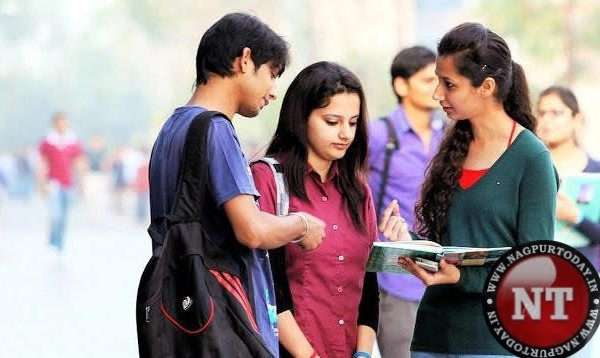
Nagpur: In a recent development, aimed at reducing dropout rates and offering greater flexibility to students, the Maharashtra Government has decided to reduce minimum passing marks in SSC for mathematics and science from 35 to 20 out of 100 to enrol in Class 11. The Government updated its State Curriculum Framework for School Education (SCF-SE), a media report said.
Students struggling in mathematics and science in State schools can get relief from the Maharashtra Government’s decision. But, there is a rider: While students will be marked as ‘passed’ on their marksheets, a special note will indicate they cannot pursue mathematics or science courses.
According to the report quoting Rahul Rekhawar, Director of State Council of Educational Research and Training, this change is part of the new curriculum framework already approved by the School Education Department. However, the change will come into effect when the new curriculum is implemented across the State, said Sharad Gosavi, the Chairman of State Board of Secondary and Higher Secondary Education.
Rekhawar said the decision would support students interested in pursuing humanities and arts, who may otherwise drop out if they fail in Class X. “Failing in mathematics or science, and in effect in SSC, often leaves students with no opportunities to continue their education, even if their strength lies elsewhere. This change is designed to ensure that students are not unfairly pushed out of the education system and can pursue their academic and career aspirations,” he said and added that if the student chooses, he/she can still appear for supplementary exam or regular exam next year, pass the subjects and get a new marksheet.
Under this framework, students who score between 20 and 34 marks in these core subjects will be permitted to advance to Class 11 but will be restricted to streams that exclude mathematics and science. They are also given the option to retake exams to improve their marks, should they wish to pursue higher education courses that require these subjects.
The move has sparked debates about fairness, educational standards, and the overall impact on students’ futures. Critics argue that this policy may bring down academic standards. But there are potential benefits too. The policy aims to reduce dropout rates, encourage career diversity, and accommodate students with different learning styles, promoting a more inclusive education system. Here is a look at the ways the new policy will help students.
One of the most compelling advantages of this policy is its potential to significantly reduce dropout rates. Students struggling with mathematics and science no longer face the prospect of abandoning their studies entirely due to poor performance in these subjects. This flexibility encourages them to continue their education and explore streams more suited to their strengths.
Demerits of the policy
Maharashtra’s decision to promote students to Class 11 despite failing in Math and Science is a controversial move that risks lowering educational standards and fostering complacency among students. Critics argue it sends the wrong message, compromising academic rigour and diminishing the value of essential subjects, ultimately undermining the quality of education. Here is a look at the negative impact this policy may have on education.
By allowing students to advance to Class 11 without meeting the minimum passing marks in essential subjects like Math and Science, the policy dilutes the importance of acquiring foundational knowledge. Mathematics and Science are critical for cognitive development, logical reasoning, and problem-solving skills. If students are not required to meet basic proficiency levels, it could lead to a weaker understanding of fundamental concepts, affecting their future academic and career pursuits.

























